At the outfall of the Sanaga river and Yoyo’s white sand beach, more than 3,000 West African fisherman have started their lives anew in the municipality of Mouanko, Cameroon. They now form a third of the population in this region where 90% of the inhabitants are busy with fisheries. They left Ghana, Nigeria, or Benin because of overfishing.
Their exile was provoked by a man-made catastrophe : the foreigners overexploitation of the ocean’s resources deprived West Africa’s artisanal fisherman from their means of subsistance.
The amount of fish taken out of West African waters has tripled since the 70’s. In 2016, the sea products exportations from that region to Europe were worth 874 millions of euros. The same year, approximately 300 Chinese industrial fishing boats were tending their nets in the region. The groupers population was reduced by 80%. An Overseas Development Institute 2016 report on illegal, unreported and unregulated (IUU) fishing says that these unlawful practices are creating the yearly loss of 300 000 jobs in West Africa. It forces artisanal fisherman to migrate in search of more fecund waters.
I photographed the migrant West African fisherman in Mouanko, and the hardships of their threatened livelihood. I followed them at sea, in the fish market, and in their camps as they struggle to survive, working from their dugout canoes, or Awasha boats, in the shadows of industrial foreign-owned boats. I witnessed their conflictual relationship with locals, who see them as unwelcome rivals. And while, incited by the growing lack of sea fish, they drifted through the mangrove’s roots of the Sanaga river, I documented how they destabilize the already fragile coastal environment of Cameroon.
This story is about South-South migration, and human impact on nature.
36% of worldwide migration is from a developing country to an other one, and it changes the environment and economics of the hosts countries like Cameroon. In this case, it is industrial fishing and overexploitation of natural resources that led a group of individuals to migrate to a more fecund, but also endangered ecosystem.
As Eugène Zounon, a Benin-born fisherman puts it : “Someday, our sons will know seas with no fish. The sea is emptying.”
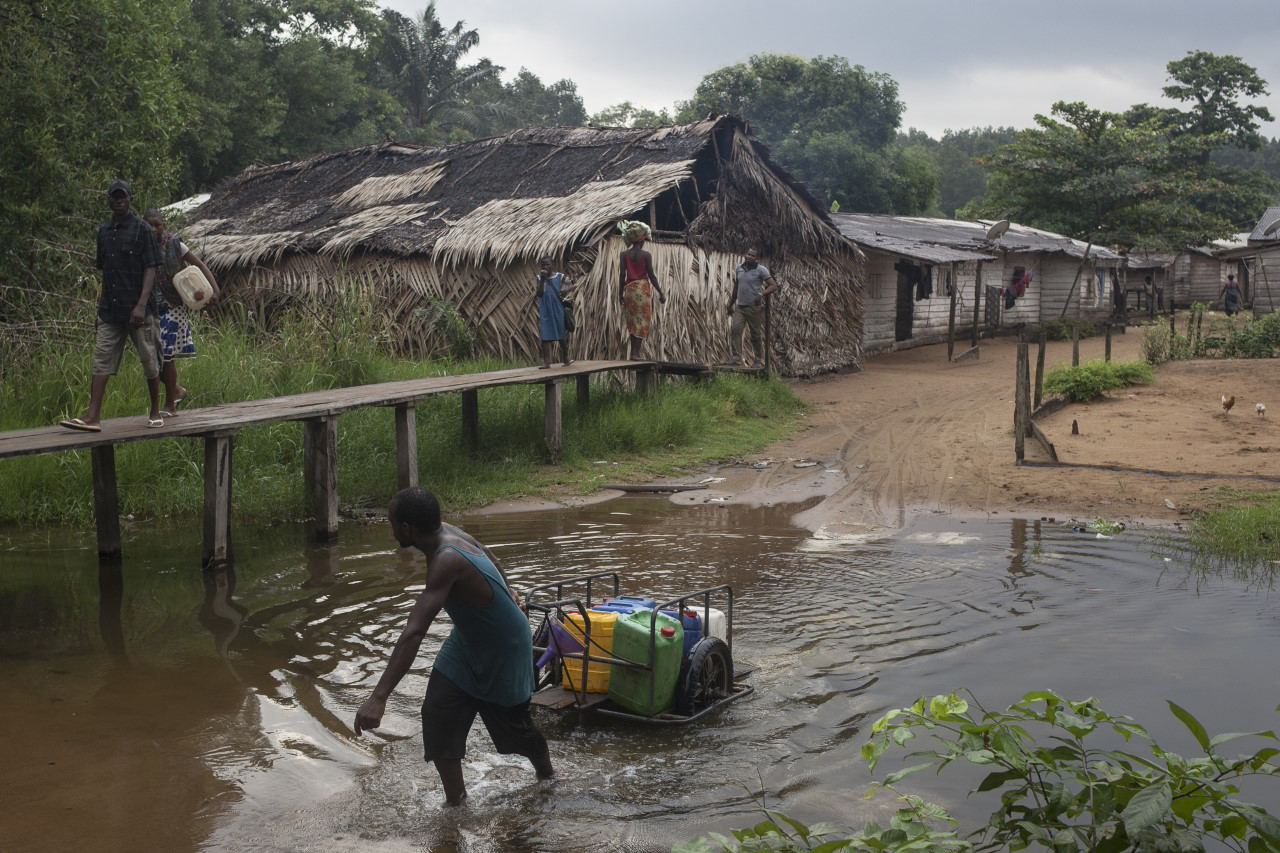
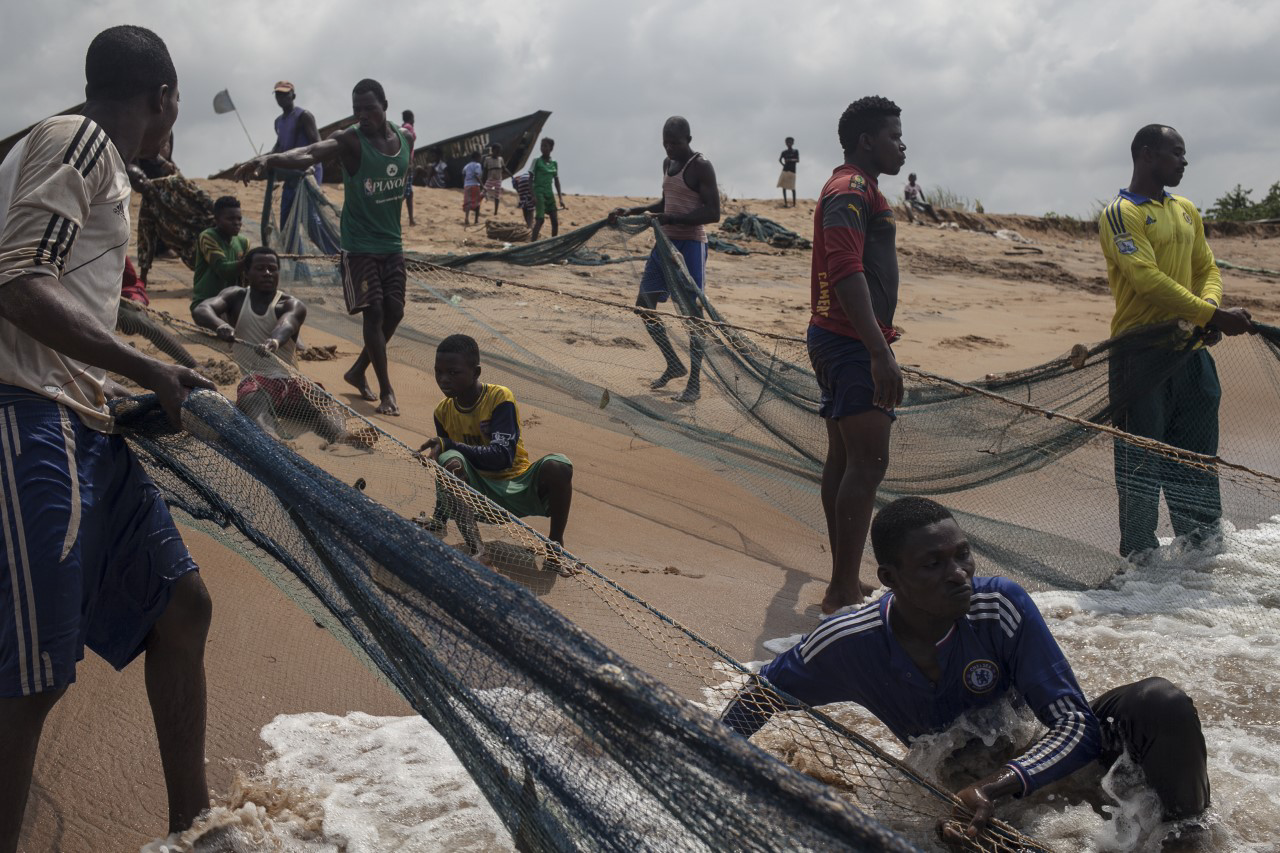
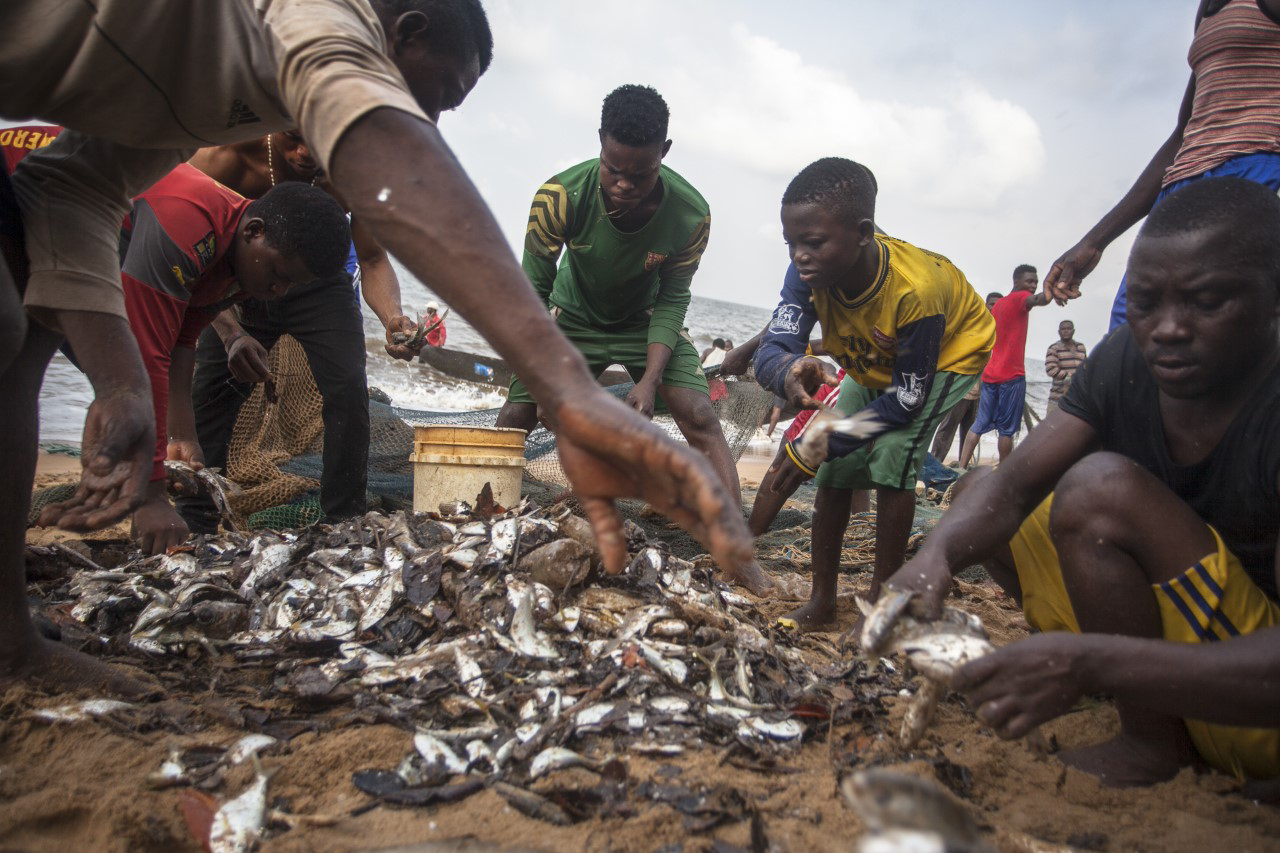
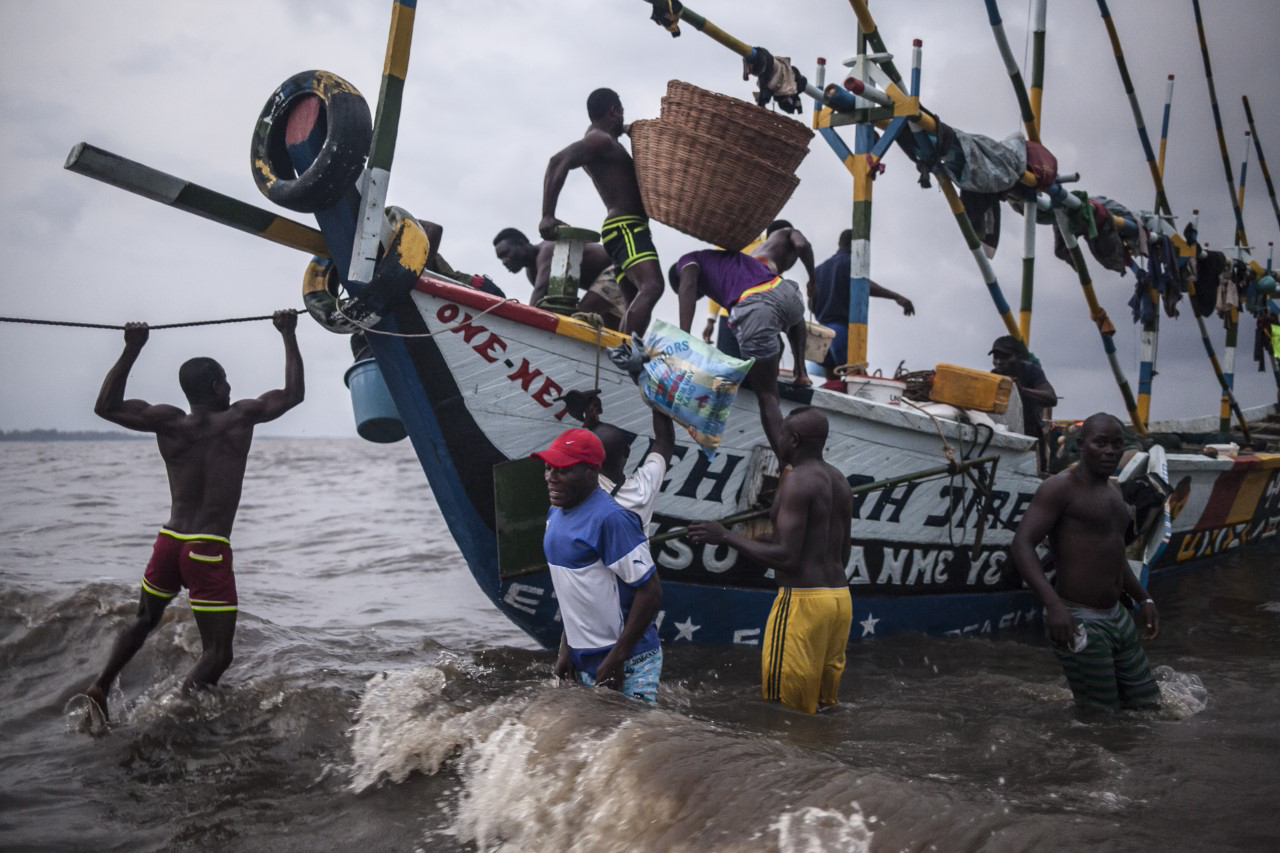
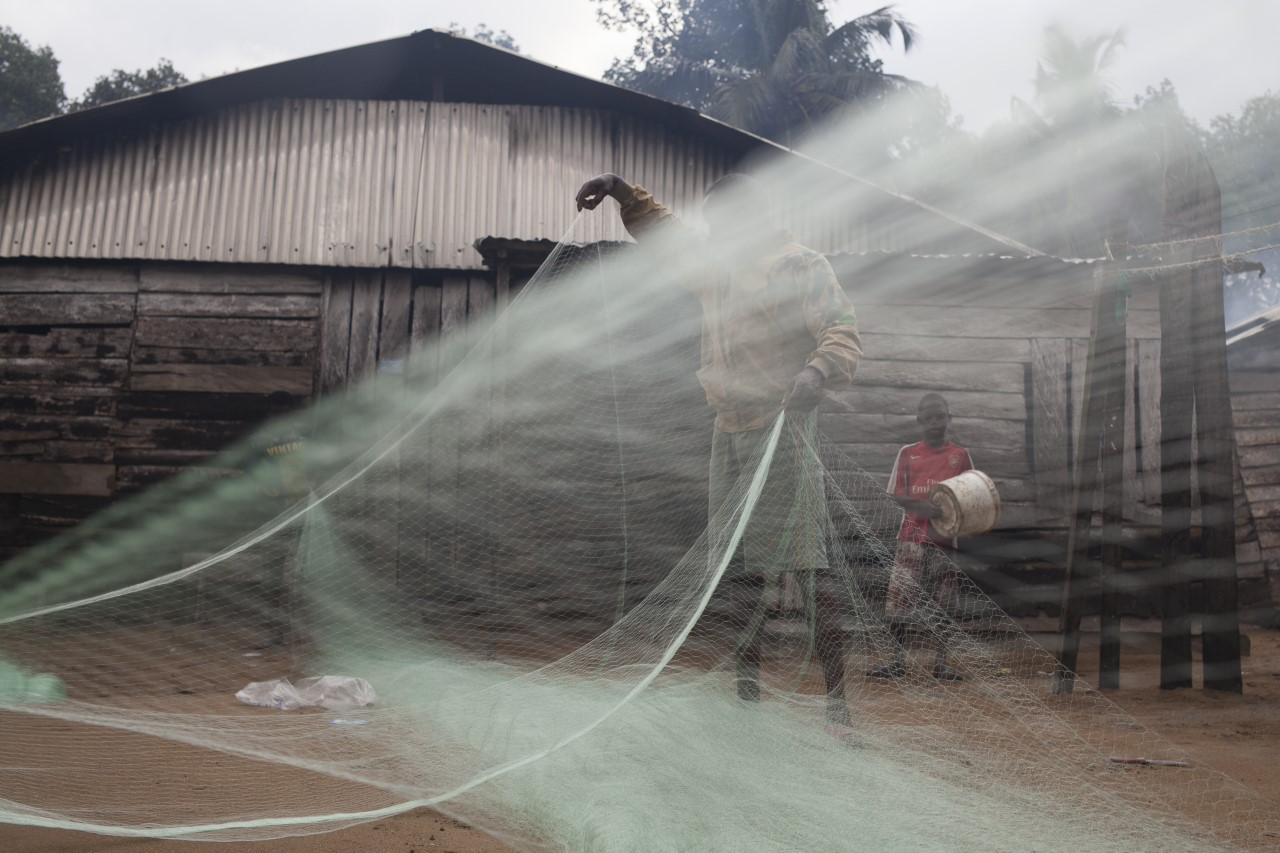
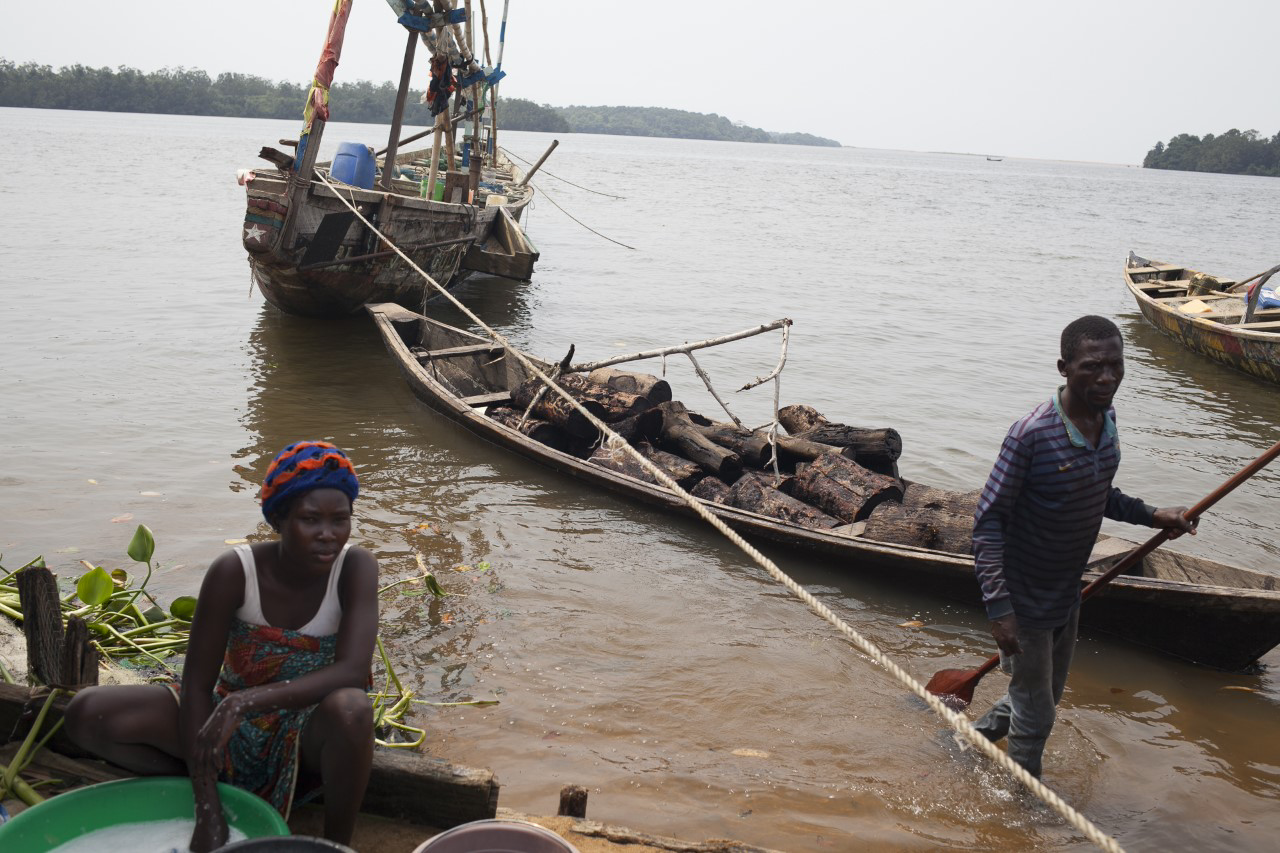
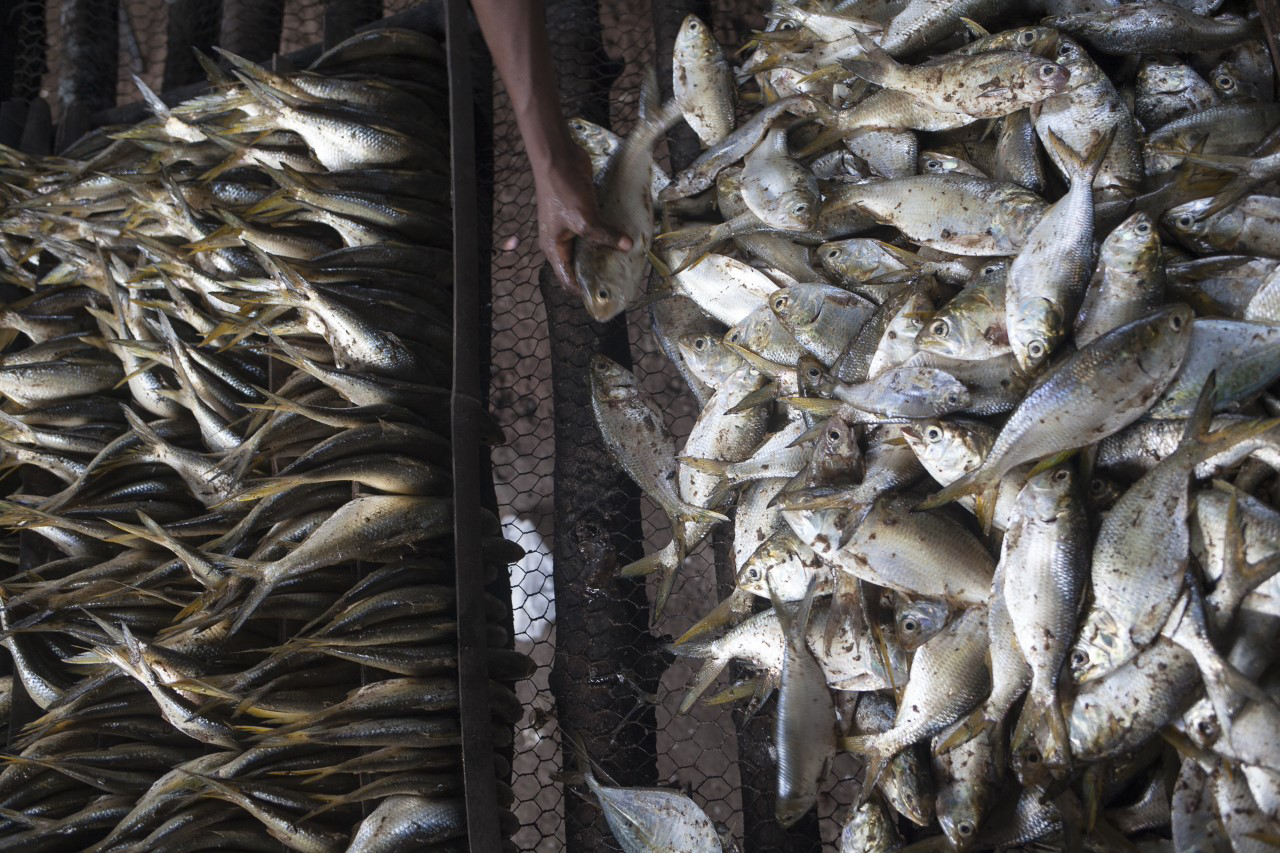
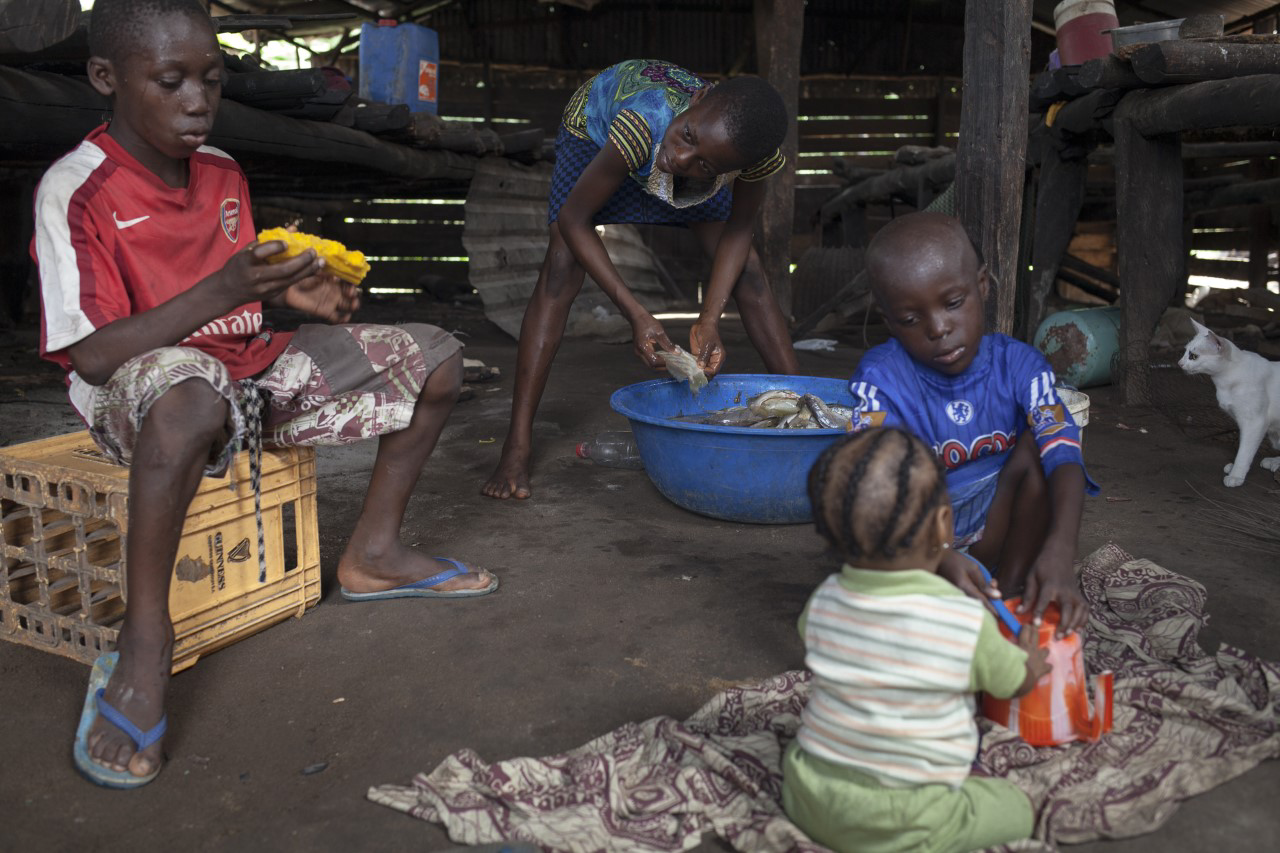
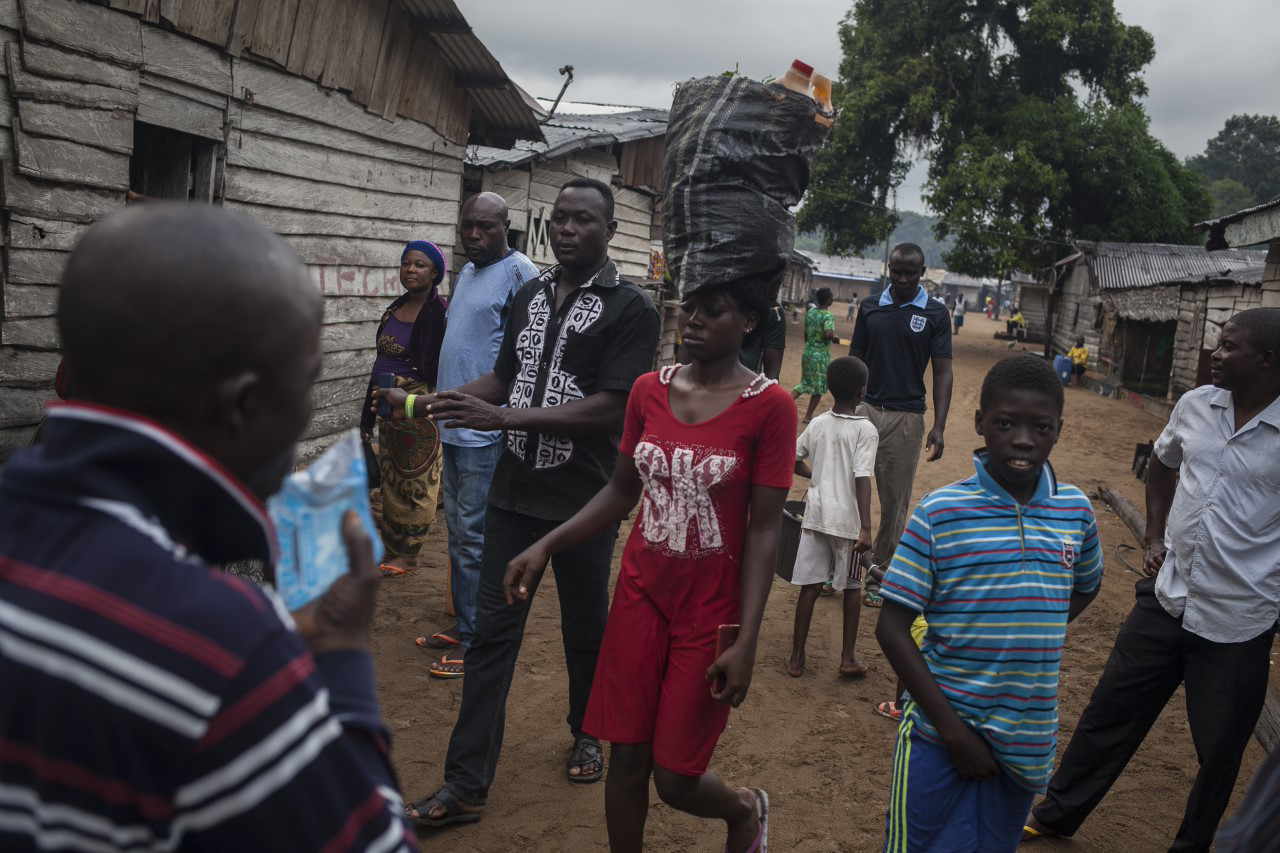
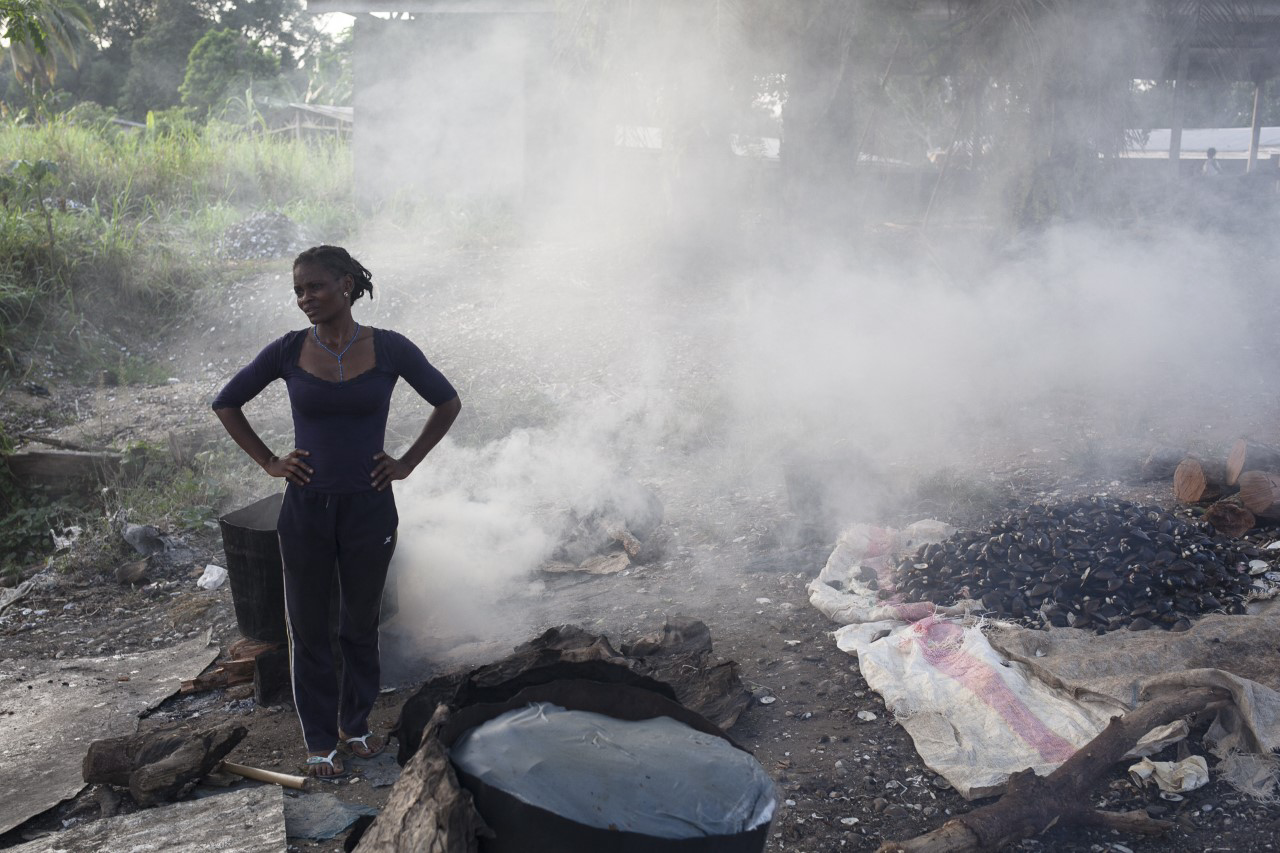
Follow Adrienne on Instagram - https://www.instagram.com/adrienne_surprenant/
and her web site - http://www.adriennesurprenant.com/#0